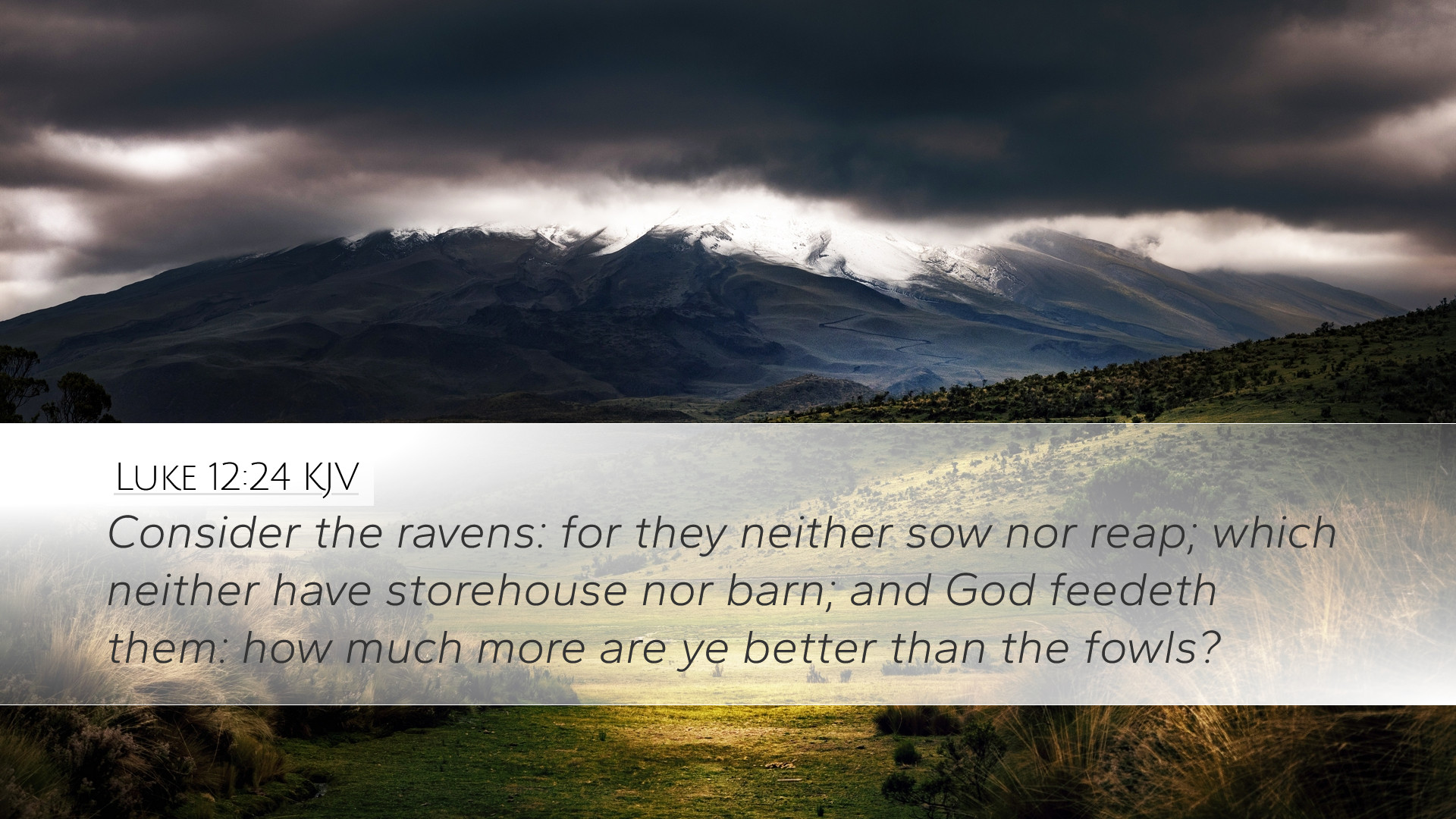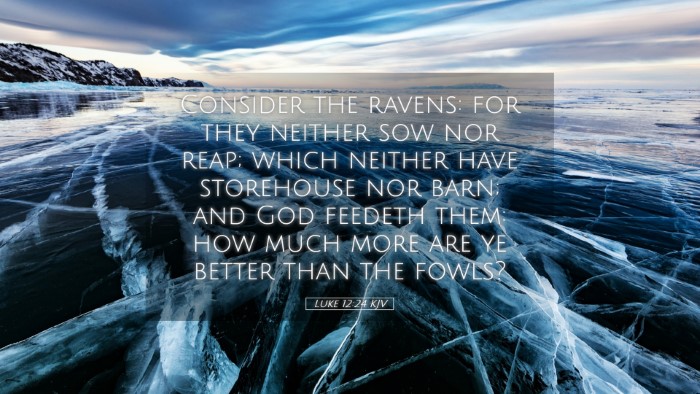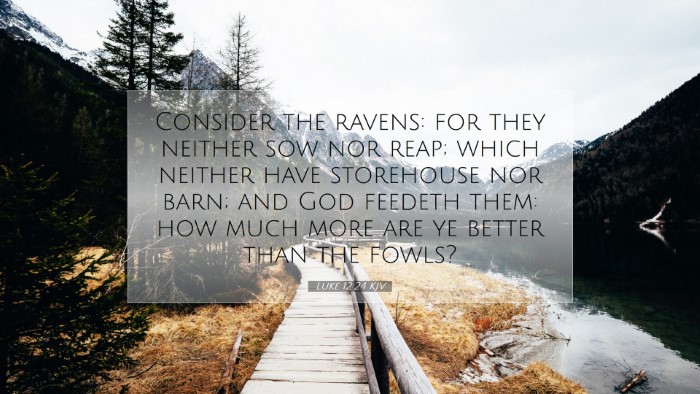Commentary on Luke 12:24
In Luke 12:24, Jesus teaches a profound lesson about divine providence and the worth of humans in comparison to nature. The verse states:
"Consider the ravens: for they neither sow nor reap; which neither have storehouse nor barn; and God feedeth them: how much more are ye better than the fowls?"
This verse invites both contemplation and reassurance regarding God's care for His creation. In exploring this text, we draw from several esteemed public domain commentaries.
1. Context and Overview
The immediate context of this teaching is found within a discourse that emphasizes the futility of anxiety over material needs. Jesus is addressing a crowd filled with various concerns, including financial and existential worries. In this setting, He employs the metaphor of ravens to illustrate a divine truth about care and providence.
2. Insights from Matthew Henry
Matthew Henry, in his commentary, emphasizes the importance of faith over fear. He notes:
- The value of life: Henry points out that our life is more than food, and our bodies more than clothing (cf. Luke 12:23). The approach of Christ emphasizes a higher order of significance attached to human life.
- Divine provision: By citing ravens, which are known for being untrustworthy in human eyes, Jesus highlights that God’s providence extends even to those creatures whom society overlooks. This shows that if God provides for the ravens, He is surely mindful of humanity—His special creation.
- Moral responsibility: Henry further articulates that while God does care for His creation, this does not grant believers a license for idleness. Instead, it entails recognizing God's provision while engaging in righteous living.
3. Insights from Albert Barnes
Albert Barnes provides a detailed exposition on this text, noting several pivotal themes:
- The analogy of the ravens: Barnes explains that this comparison is striking, as ravens possess no means for storing food, yet are sustained by God. This comparison serves to highlight God’s omnipotent care and control over creation.
- Human dignity: He stresses that Jesus uses this imagery to elevate the understanding of human dignity, emphasizing that humans are created in the image of God and thus hold far greater value than the creatures of the field.
- Encouragement against anxiety: Barnes encourages believers to trust in God’s providential care, especially in moments of worry. The rhetorical question posed by Jesus serves to remind the audience of God's faithfulness.
4. Insights from Adam Clarke
Adam Clarke offers an in-depth analysis of the cultural and historical context surrounding birds in biblical literature:
- Cultural perception: Clarke notes that among the Jews, ravens were seen as unclean animals. This underscores Jesus' lesson: if God cares for those deemed unclean, how much more will He care for His people?
- Trusting God's providence: He emphasizes that the command to 'consider' the ravens involves a reflective thought process that leads the listener to appreciate God’s providence more deeply.
- Spiritual application: Clarke relates this teaching to broader themes of spiritual dependency on God, encouraging believers to seek first the kingdom of God (Matthew 6:33) rather than being overly consumed with material concerns.
5. Theological Implications
This verse holds significant theological implications for understanding God’s nature and His relationship with creation:
- Divine Providence: The passage illustrates the doctrine of providence—God’s ongoing involvement in the world and His provision for all creatures.
- Human worth: It affirms the inherent worth of human beings, rooted in their creation in the divine image, which underscores the value that God places on His people.
- Faith versus Anxiety: Jesus' exhortation to observe God's care for the ravens serves as a call to trust Him rather than succumb to worry.
6. Practical Applications for Pastors and Leaders
This verse provides valuable insights for pastoral ministry and Christian leadership:
- Encouragement to congregations: Pastors can use this teaching to encourage believers facing anxiety about their needs, reinforcing the assurance of God’s care.
- Inspiration for outreach: This scripture can inspire outreach efforts, urging believers to acknowledge God's provision and share blessings with those in need, particularly those deemed marginalized.
- Modeling dependence on God: Leaders should model dependence on God’s provision in their own lives, demonstrating faith through trust in His care over material concerns.
Conclusion
Luke 12:24 serves as a poignant reminder of God’s faithfulness and care. The insights drawn from respected commentaries illuminate the text's relevance across various contexts—be it for personal faith, pastoral care, or broader theological reflection. As believers consider the ravens and the care afforded to them, we are compelled to trust in God’s providence, knowing that we hold far greater worth in His eyes.


